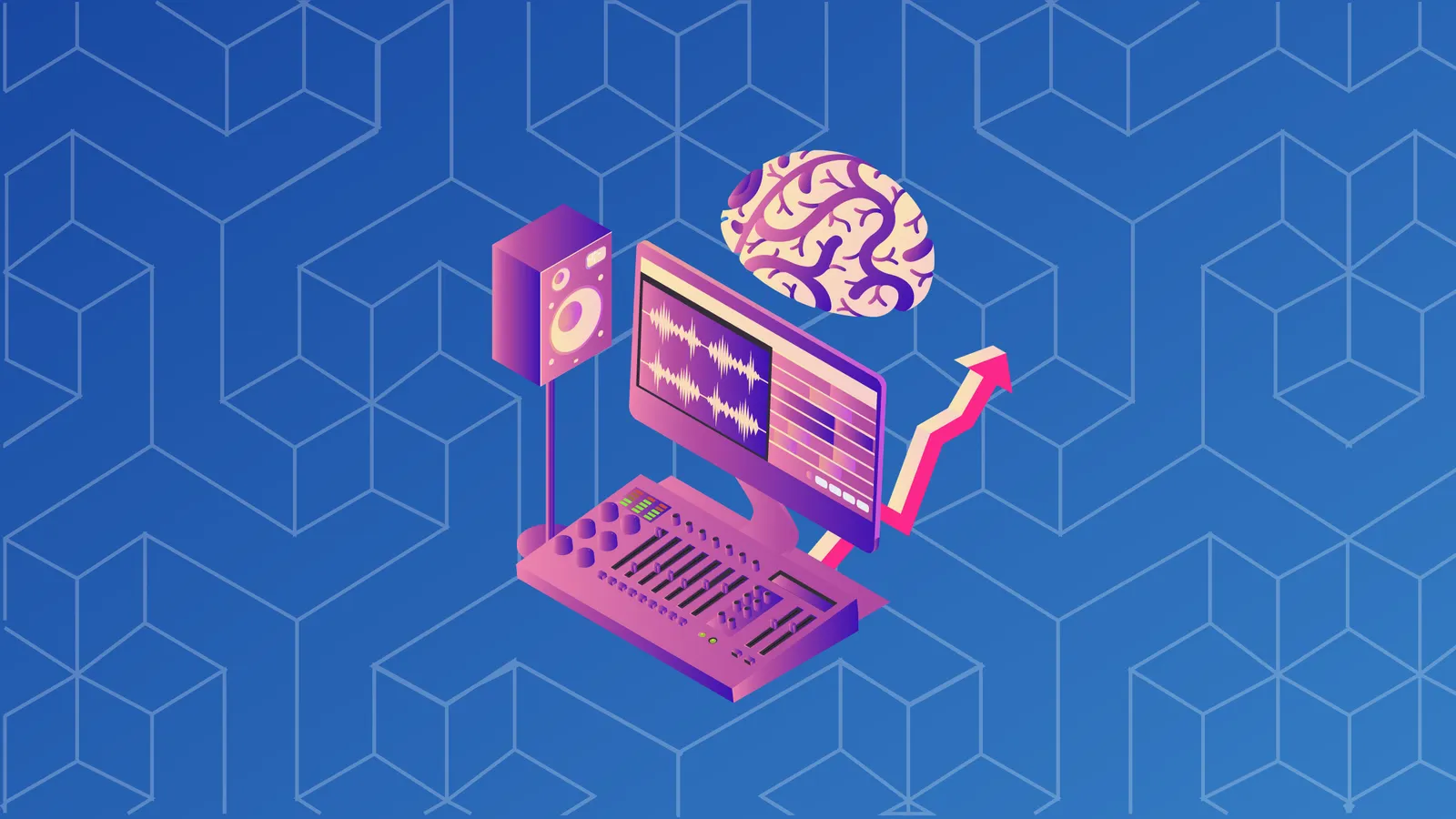As previous chapters of this course have attempted to show, generative artificial intelligence (AI) is a powerful force in the creative world. When it comes to music, AI is already capable of empowering non-musicians to create and alter their own songs, of completing a symphony by a composer who has been dead for 200 years, of shapeshifting one singer’s voice into another, and of producing a literally endless song, among many other things. Still, it’s clear that we are only beginning to see how much this technology can do.
What the future of AI-based music looks like depends largely on who you ask. Supporters and early adopters may see it as a boundless tool to open up the creative space to people who have never before had access—imagine someone who knows nothing about music being able to instantly create and then tweak their own album. It can create multi-disciplinary collaborations where they were previously impossible. They may also say that music AI tools will enable human musicians to create new sounds, songs, and works the likes of which no one has yet imagined.
Supporters may also say that as generative AI improves, it can narrow in on the exact aspects of music that drive each listener’s emotional response. If a particular chord progression elicits a strong response, for example, AI can use that information to perfectly tailor music to a specific listener. Even more, AI may someday be able to do that without even requiring intentional feedback from the listener, but rather by simply monitoring brain activity.
In this vision of generative music AI, technology exists both to empower humans and to remove any and all barriers possible to enjoying the experience of creating and listening to music. On the reverse side of the coin, though, there is a much darker and more pessimistic future one can imagine.
Music AI could potentially also be used to steal a performer’s work, their likeness, or even their voice, attaching it to countless, unlabeled, unsanctioned songs without any recourse for that artist. Artists may lose their ability to control their own creative output, to earn money from their work, and to claim ownership over their intellectual property. Streaming platforms may favor AI-generated music so strongly that they essentially wipe out one of the last remaining sources of revenue for human artists. And listeners may be completely unable to differentiate between authentic human-made songs and deep fakes or frauds.
These two visions of the future of musical AI are dramatically different from one another, and the truth may lie somewhere in the middle. As with many aspects of AI technology, the rapid development of this powerful tool and its potential to upend many well-established systems leaves many questions unanswered.
Cheat Sheet
- Generative artificial intelligence (AI) is already a powerful tool to create music, capable of allowing non-musicians to make and tweak their own songs, or of substituting one voice for another, or of producing a song that is literally endless.
- The future of AI-based music is open-ended.
- On one hand, music AI could open up the music-making and creative processes to countless people who would never have otherwise experienced them. Music AI could develop the ability to refine and tailor songs to each individual in a way previously impossible.
- On the other hand, this technology could end up eradicating human artists’ abilities to control their own voices and creative output, making it impossible to distinguish between what is made by humans and what is crafted by AI, and thus impossible to say who owns or should receive payment for their work.


